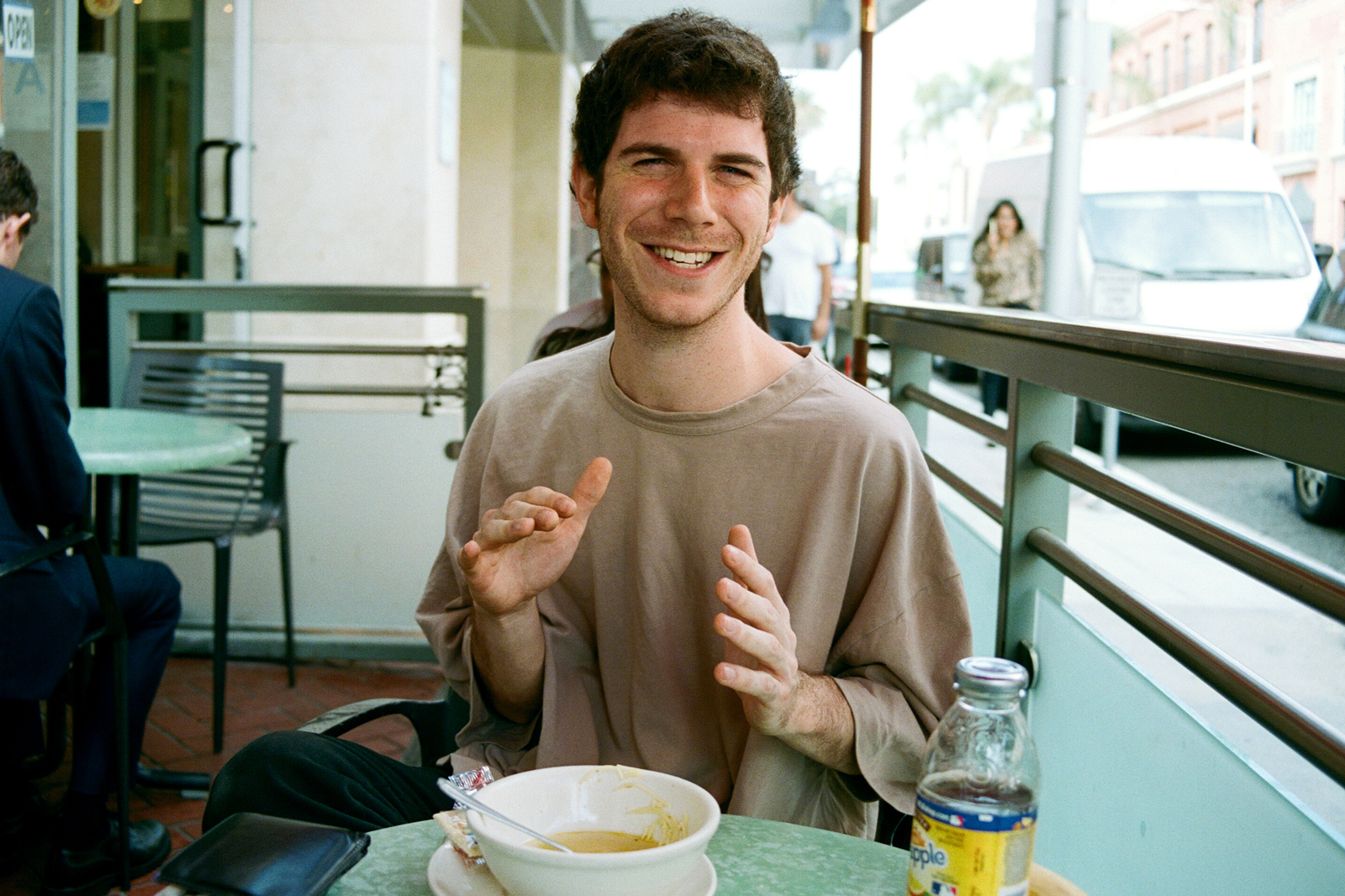Interview: Alec Coiro
There is music that you put on to let your thoughts wander, and then there is music that makes you think. Hold Me Up to the Light by Joq and Zoomy lands solidly in the latter category. Created with contemporary tools to describe our contemporary moment, Joq and Zoomy rethink the dimensions of music while at the same time exploring our modern relationship to things like violence, chaos, and power. It is the sort of complex achievement that can simultaneously be an anti-pop record and a record that critiques the dichotomy between pop and art.
It’s a very rewarding listen that we highly recommend if you’re prepared to engage with it. Joq and Zoomy are aliases. The anonymous artists behind the album are both accomplished pop producers working out of Los Angeles. So this is not a project they have created for the recognition, and the result, it seems to me, is an album dedicated to the serious listeners out there. Freed from the confines of producing to please the algorithm, they have managed to create something highly original.
What was behind the decision to conceive of the record as a 60 minute loop?
Joq: The idea there is to point up music’s intimate and inextricable relationship to time. Music is a temporal art form. It unfolds in and over time. At 60 minutes and 12 tracks, you can think of the record as resembling a clock, looping from 12 to 12. The clock is always ticking. And it’s interesting how seldom we think about this as music consumers. We tend to think of music as primarily a sonic art, something that fills space(s) with sound. While this is certainly true – music does fill space with sounds – we generally ignore the temporal aspect, which I think is even more fundamental. Part of what we’re arguing with HMUTTL is that time is the most basic dimension of music. If sound is the “palette” we’re working with, then time is the canvas.
Zoomy: Also, when we started creating this piece we were interpreting these heavy themes and musically it was translating into long, evolving, repetitive sections. And it immediately felt logical to us that the entire “album” could be thought of in that way, where it keeps going and going and each listen sounds subjectively a bit different than the previous one.
You are releasing this record under pseudonyms, but we do know that outside of those pseudonyms, you ghost-produce pop music. Your approach here seems experimental and decidedly anti-pop. Is there a message behind this or are you more exploring a range of styles?
Zoomy: Something Joq and I have in common is that we both entered the pop music world through some sort-of back channel. We both grew up playing in rock bands and we were both involved in more independent projects before haphazardly finding some success in pop music. And we both have a similar sort of disillusionment with the way the LA pop factory works. So a lot of the impetus for this record did come from a reactionary place. But aside from that, Joq and I have for a long time bonded over our love of contemporary classical, minimalist composers, and what the pop world would classify as “experimental music”. So I think for me at least, there has always been a deep desire to create and release something like this.
Joq: Yeah, a project of this kind is something both of us have wanted to do for a while. It’s “anti-pop” in the sense of taking a critical stance toward the industry in some senses. That said, I’d say we’re also taking a critical stance toward this classic dichotomy between “experimental” and “popular” music that’s being implied here. What exactly do we mean when we talk about this distinction anyway?
Short of getting into a “what is art?” kind of conversation, it’s super interesting (and kind of funny) to me that, in the 21st century, post-Warhol, we’re still talking about this pop-vs-Art thing in more or less the same old terms. We still maintain this Victorian-era division between high and low forms of art. One is rigorous and the other is not, one has truth content and the other doesn’t, etc. Is it really a difference in things like aesthetic accessibility or commercial viability anymore? It’s by no means unheard of for a single work of Art to fetch tens of millions of dollars on the market, mostly on the basis of hype and name. Meanwhile, pop producers are stoked on making tenths of a cent off Spotify plays. This discussion isn’t new, of course.
Why did you decide to go by pseudonyms for this project?
Zoomy: Mostly because we didn’t want people to be googling our names and credits. We really wanted to avoid the discussion being about what pop projects we have worked on or are associated with. It’s a large part of our story and gives context to our project, but we felt that once we start talking about the specifics of who we work with, it becomes less about the music and more about that. Which is kind of one of the very things our music is attempting to critique.
Joq: Yes. Worse still would be the prospect of people thinking about some of these names while listening to this album for the first time, which is probably what would happen. Maybe we’ll reassess anonymity later, maybe not.
This album strikes me as extremely contemporary both in terms of its themes, its embrace of the platform on which its released, and it just sounds new/original. Is this sort of newness and originality something you actively pursue?
Joq: Wow! Super stoked and flattered that you say it sounds so new and original! That’s honestly higher praise than we could possibly ask for. I think the both of us would consider true novelty in music to be a pretty tall order nowadays, to the point where it’s a very difficult (if not creatively inhibiting) thing to actively pursue. But I’d say it’s still something worth striving for. It’s always somewhere in the back of your head when you’re making things as a kind of vague goal you hope to someday/maybe achieve. Have we really done it?!
Zoomy: It’s definitely a far cry from a lot of our daily work in the pop world where you are interfacing with A&R whose job is to make a label lots and lots of money. We clearly approach this project with zero commercial intention which is how I believe artistic value should be created today.
The flip side of the above question is what did you listen to when you were making the album? What would see as its precursors?
Zoomy: I listened to very little while making the album. In fact, I’m not sure I listened to anything. When we first began working on this project, my mind was preoccupied with history and historical recurrence of violence. The actual approach was much more informed by that than by any specific musical influences. And the timbral palette just came from wanting to go hi-fi – sort of anti-ambient, anti-nostalgia. History through today’s lens and not history through rose-colored glasses.
Joq: Yeah I can’t recall listening to anything intentionally as a reference while working on this. I also work as a mix engineer, so I’m constantly listening to other things, and that was certainly the case while working on HMUTTL. I don’t doubt that some of that stuff found its way into this project unconsciously, but as it’s unconscious I can’t really speak to it. Nothing is really made in a vacuum.
Also nothing is truly without its precursors, obviously. Zoomy started getting into this a bit earlier. So-called “minimalist” composers like Reich and Glass are an antecedent here, for sure, not necessarily in the sense that we were going for a “minimal” sound, but definitely in the way we’re dealing with things like time, pattern, repetition/change, and thinking about music in terms of a gradual process, etc. We’ve also been really into people like Ryuichi Sakamoto and Alva Noto, and have been keeping tabs on the whole Raster-Noton catalogue for years. I had one quote from Iannis Xenakis on my mind while I was working: “What remains of music once one removes time?”

